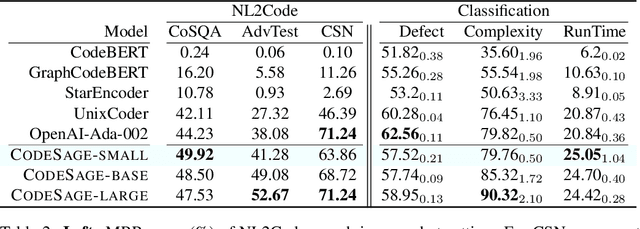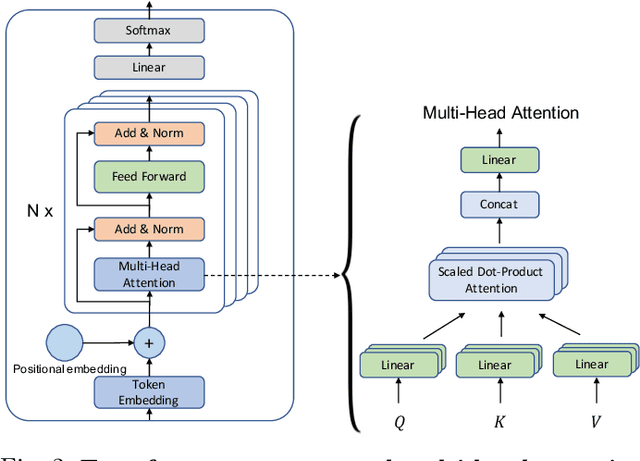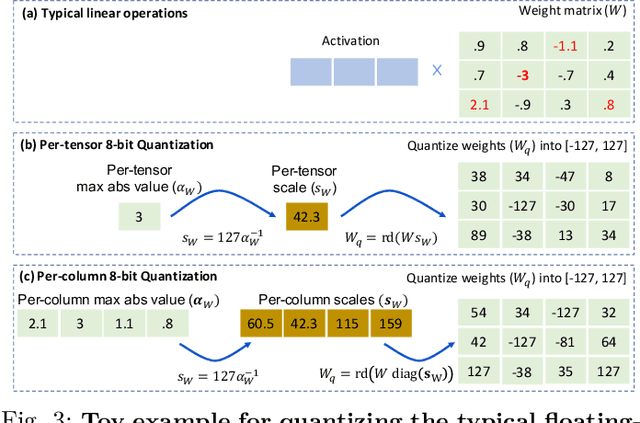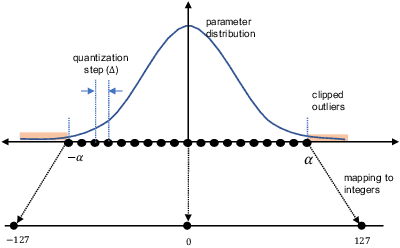Wasi Ahmad
Code Representation Learning At Scale
Feb 02, 2024



Abstract:Recent studies have shown that code language models at scale demonstrate significant performance gains on downstream tasks, i.e., code generation. However, most of the existing works on code representation learning train models at a hundred million parameter scale using very limited pretraining corpora. In this work, we fuel code representation learning with a vast amount of code data via a two-stage pretraining scheme. We first train the encoders via a mix that leverages both randomness in masking language modeling and the structure aspect of programming language. We then enhance the representations via contrastive learning with hard negative and hard positive constructed in an unsupervised manner. We establish an off-the-shelf encoder model that persistently outperforms the existing models on a wide variety of downstream tasks by large margins. To comprehend the factors contributing to successful code representation learning, we conduct detailed ablations and share our findings on (i) a customized and effective token-level denoising scheme for source code; (ii) the importance of hard negatives and hard positives; (iii) how the proposed bimodal contrastive learning boost the cross-lingual semantic search performance; and (iv) how the pretraining schemes decide the downstream task performance scales with the model size.
* 10 pages
Greener yet Powerful: Taming Large Code Generation Models with Quantization
Mar 09, 2023



Abstract:ML-powered code generation aims to assist developers to write code in a more productive manner, by intelligently generating code blocks based on natural language prompts. Recently, large pretrained deep learning models have substantially pushed the boundary of code generation and achieved impressive performance. Despite their great power, the huge number of model parameters poses a significant threat to adapting them in a regular software development environment, where a developer might use a standard laptop or mid-size server to develop her code. Such large models incur significant resource usage (in terms of memory, latency, and dollars) as well as carbon footprint. Model compression is a promising approach to address these challenges. Several techniques are proposed to compress large pretrained models typically used for vision or textual data. Out of many available compression techniques, we identified that quantization is mostly applicable for code generation task as it does not require significant retraining cost. As quantization represents model parameters with lower-bit integer (e.g., int8), the model size and runtime latency would both benefit from such int representation. We extensively study the impact of quantized model on code generation tasks across different dimension: (i) resource usage and carbon footprint, (ii) accuracy, and (iii) robustness. To this end, through systematic experiments we find a recipe of quantization technique that could run even a $6$B model in a regular laptop without significant accuracy or robustness degradation. We further found the recipe is readily applicable to code summarization task as well.
 Add to Chrome
Add to Chrome Add to Firefox
Add to Firefox Add to Edge
Add to Edge